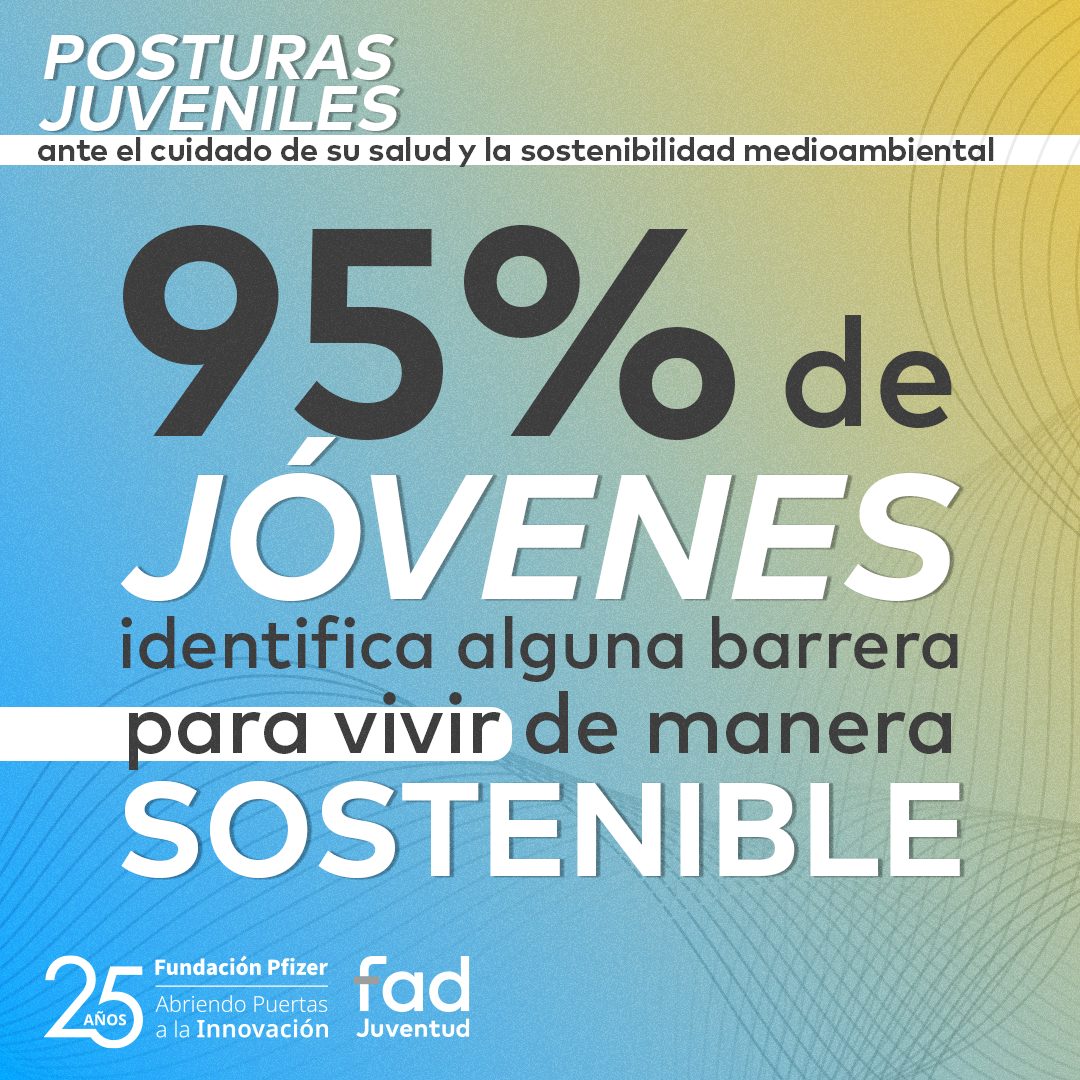
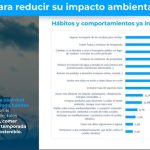

Although 86.8% of young people in Spain are highly concerned about the environment, a surprising 95% consider it difficult to adopt a sustainable lifestyle. These are the data revealed by a study about how youth in Spain perceive and respond to the climate crisis.
In a context where the climate crisis is intensifying and its effects are becoming more and more palpable, Spanish youth emerge as a group deeply interested, aware and committed to caring for the environment and promoting a sustainable life.
Caring for the environment occupies fourth position (30%) among the issues that most concern youth, not far behind economic growth (36.4%); equality between men and women (36.4%) or the fight against economic inequality and poverty (33.1%).
And when you ask directly how much care for the environment is concerned, A large majority of young people express great concern about this issue: almost 9 out of 10 young people between 15 and 29 years old.
These are some of the conclusions collected in the study “Youthful positions regarding health care and environmental sustainability”carried out by the Pfizer Foundation and the Reina Sofía Center of Fad Juventud.
Sergio Rodríguez, president of the Pfizer Foundation, alert that the World Health Organization (WHO) already warned a few years ago that climate change will cause some 250,000 additional deaths per year between 2030 and 2050.
“For this reason, it is interesting to know what young people’s concerns are about the environment and how they relate them to health. Understanding their perceptions is important in order to promote healthy habits and search for present and future solutions,” explains Sergio Rodríguez.
The impossibility of leading a sustainable life
This concern of young people for the environment is directly related to their experience with phenomena such as heat waves (67%)the fires (31.8%)the exceptional droughts (27.8%)the insect and animal pests (24.8%) and the air pollution (18.7%)lwhich tangibly affect your daily life.
As a result, almost half of young people (47.5%) have modified their daily habits to reduce their environmental impactadopting practices such as recycling, sustainable mobility and the consumption of local products.
However, the 95% say they face some type of barrier to adopting a sustainable lifestyle.
The main difficulties they point out are the high cost of sustainable products and services (49.1%) and the lack of economic incentives (34.7%).
Besides, 33.9% feel that their individual actions have little significant impact, and 27.6% perceive that the information available on how to live more sustainably is insufficient or confusing.
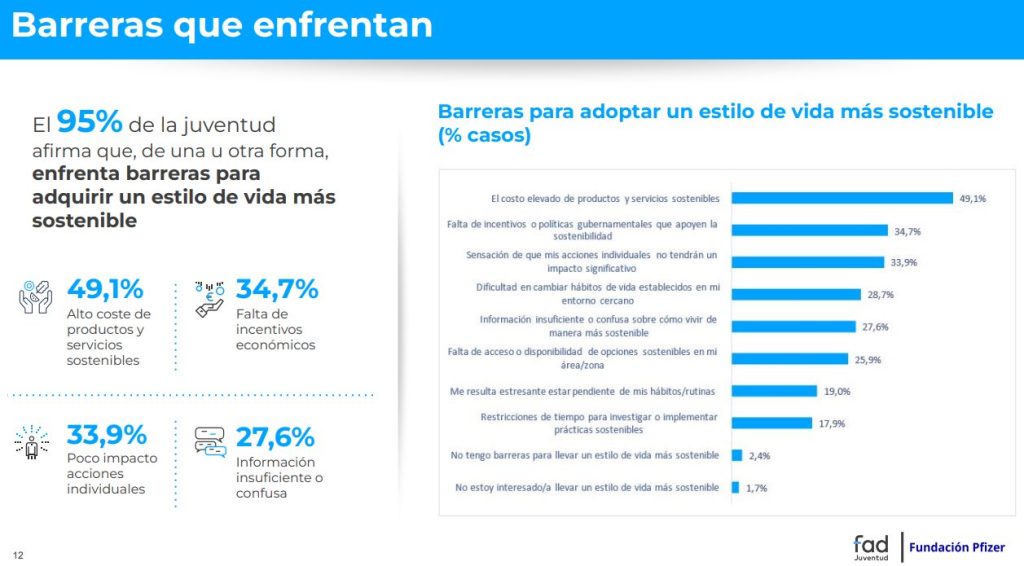

Changes in the habits and routines of young people
Around half of young people (47.5%) have adopted sustainable habits in response to climate change, and almost a third (29.2%) have opted for more sustainable forms of mobility.
Regarding the sustainable habits related to the environment that young people have integrated into their daily lives, it is observed that none of these habits exceeds 35% of practice.
This indicates that these routines are not yet widely integrated in youth.
He The most practiced is the habit of recycling (35.4%) and eating seasonal fruit and vegetables (33%), and the least to have a vegan or vegetarian diet (5.5%) and belonging to an entity that fights climate change (5.3%).
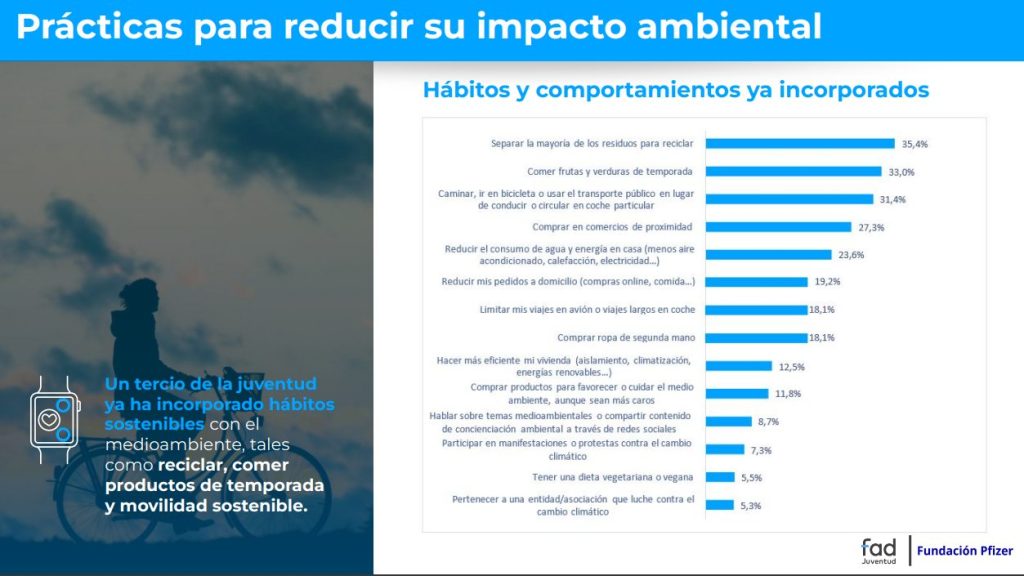

One health
“One health” either “One health” It is an approach that links human, animal and environmental health and that highlights the interdependence of these elements to guarantee comprehensive well-being.
A 31.7% of the young population in Spain claims to know this concept.
Although knowledge of the concept is relatively low, there is a growing understanding among youth of the intrinsic relationship between the environment and health.
More than a quarter of the young population is concerned about the increase in chronic diseases and the extinction of species.
For a large part of youth, this connection between the environment and their health becomes evident through the need to maintain good health. air and water quality.
A 56.4% of young people recognize its direct impact on the prevention of respiratory and gastrointestinal diseases.
However, other key aspects of the approach, such as animal welfare, biodiversity and waste management, receive less attention.
Just one 17.1% of the young values animal welfare as a relevant factor for human health.
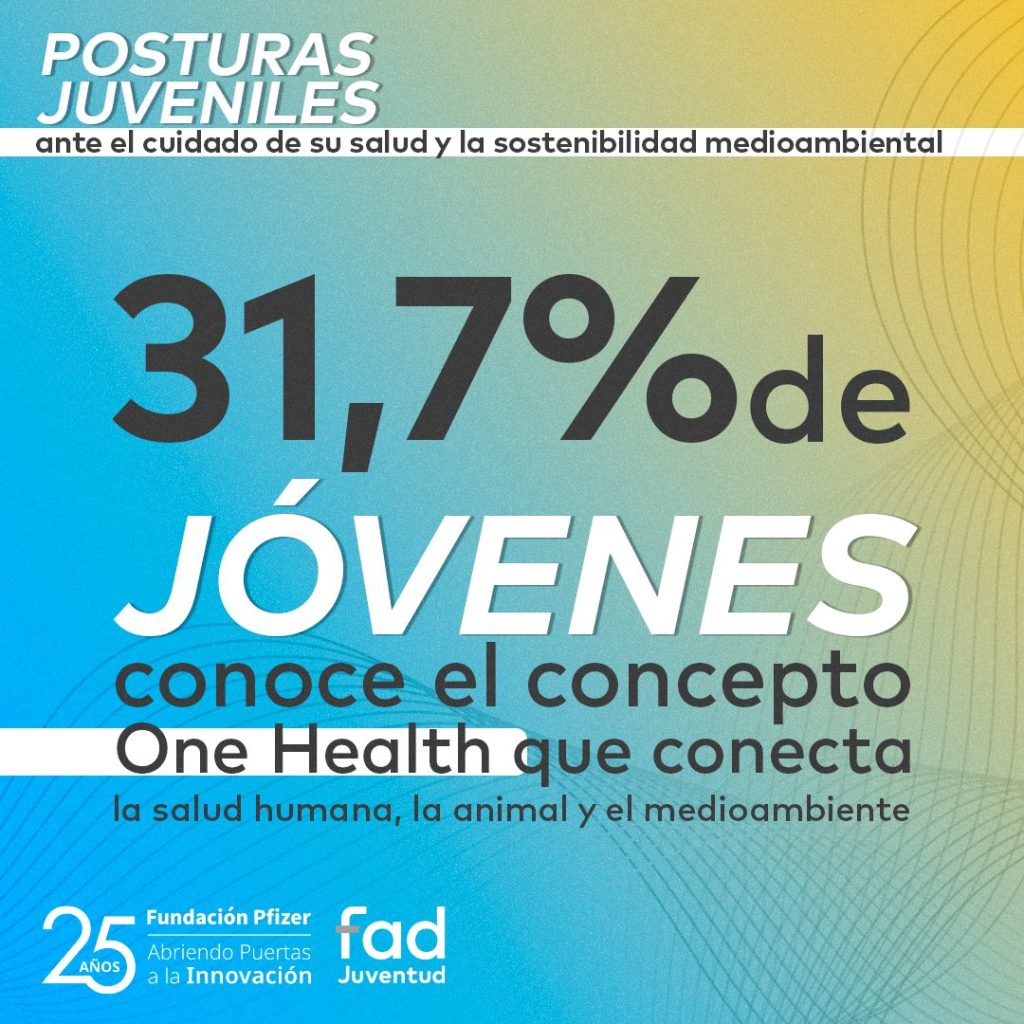

Who do young people trust?
In an environment where information about climate change is abundant but sometimes confusing, Spanish youth look for reliable sources to guide their actions and decisions regarding the environment and sustainability.
With an average of 3.66 out of 5 in reliability, it is established that youth deposit greater trust in the scientific communityfollowed by international organizations (3.31) and environmental organizations and activists (3.21).
They trust less companies (2.72) and the governments and public administrations (2.66).
The media and social networks are in the last places with 2.64 and 2.60 points respectively.
Committed young people
Beatriz Martín Padura, general director of Fad Juventud, points out that youth have demonstrated exceptional commitment and clear awareness of the challenges posed by climate change.
“Their concern is not only a reflection of the adversities they already face, but also a call to action for the entire society. It is crucial that effective policies are addressed that remove the barriers that prevent them from adopting a more sustainable lifestyle. We cannot allow the lack of institutional support to stop their will to change,” concludes Beatriz Martín Padura.
